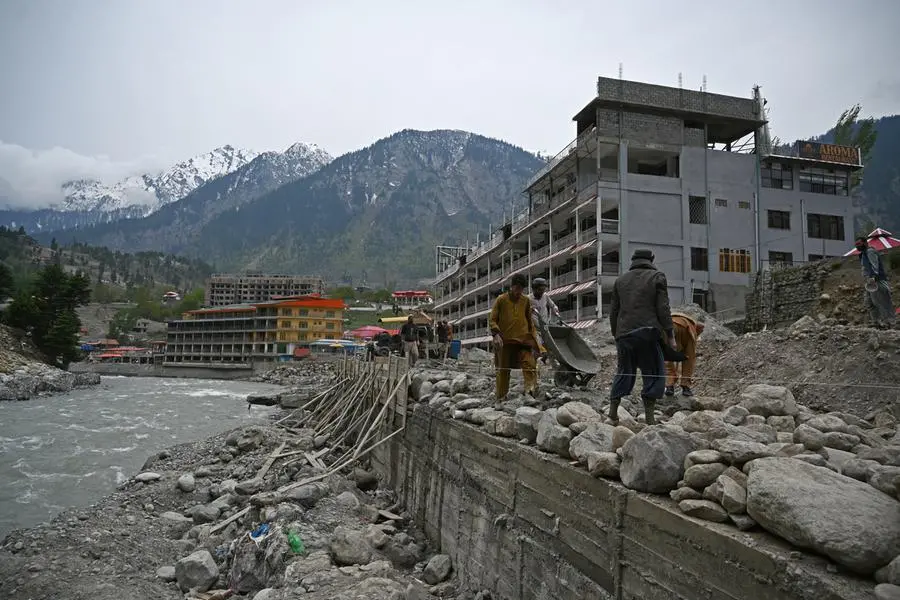PHOTO
Around 100,000 people have been evacuated from flooded villages in Pakistan's Punjab province, emergency services said on Wednesday.
Several hundred villages and thousands of acres of cropland in the central province were inundated when the Sutlej river burst its banks on Sunday.
The head of Punjab's government, Mohsin Naqvi, said that monsoon rains had prompted authorities in India to release excess reservoir water into the Sutlej river, causing flooding downstream on the Pakistani side of the border.
"The flood waters came a couple of days ago and all our houses were submerged. We walked all the way here on foot with great difficulty," 29 year-old Kashif Mehmood, who fled with his wife and three children to a relief camp, told AFP on Tuesday.
The summer monsoon brings South Asia 70-80 percent of its annual rainfall between June and September every year.
It is vital for the livelihoods of millions of farmers and food security in a region of around two billion people -- but it also brings landslides and floods that lead to frequent evacuations.
"We have rescued 100,000 people and transferred them to safer places," Farooq Ahmad, spokesman for the Punjab emergency services, told AFP on Wednesday.
More than 175 people have died in Pakistan in rain-related incidents since the monsoon season began in late June, mainly due to electrocution and buildings collapsing, emergency services have reported.
Officials on the Indian side could not immediately be reached for comment.
"There is five or six feet (1.5-1.8 metres) of water accumulated over the roads. The only route that could have been used to come and go is now under water. This 15- or 16-kilometre route is now being covered by boat so that we can rescue people," Muhammad Amin, a local doctor volunteering at a relief camp, told AFP on Tuesday.
The Punjab disaster management agency warned that forecasted monsoon rains could exacerbate the flooding in the coming days.
Pakistan is still recovering from the devastating floods that inundated nearly one-third of the country in 2022, affecting more than 33 million people.
Scientists have said climate change is making seasonal rains heavier and more unpredictable.
Pakistan, which has the world's fifth-largest population, is responsible for less than one percent of global greenhouse gas emissions, according to officials, but is highly vulnerable to extreme weather exacerbated by global warming.





















